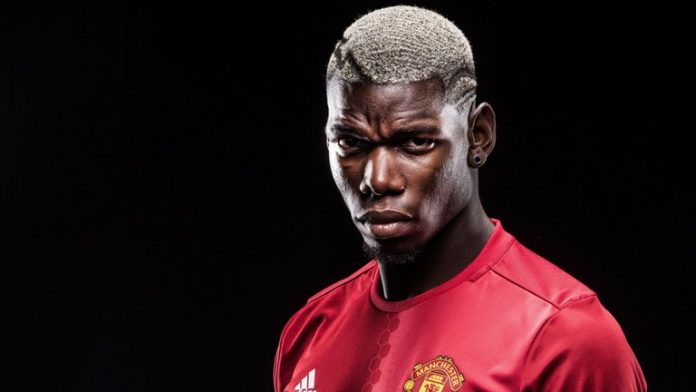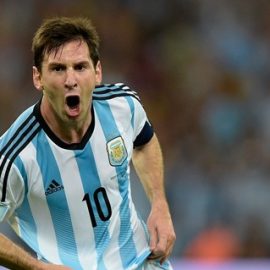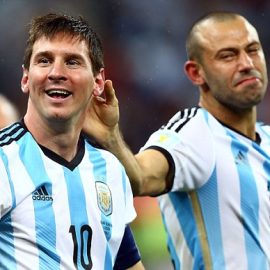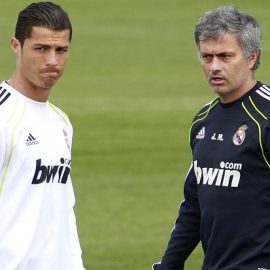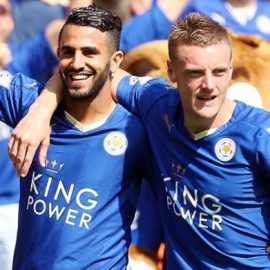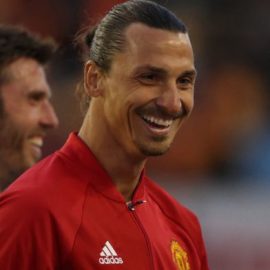Last month, I wrote a brief article about the humanitarian efforts of a MLS player, Diego Gutierrez, a midfielder who plays for the Chicago Fire.
Mr. Gutierrez, who is a native of Bogotá, Colombia, is the spokesman for a very interesting cause called Nothing But Nets. This charity was formed to help alleviate the spread and suffering of malaria on the African continent. He helped to raise over US $400,000 to provide insect nets that cover beds. This simple yet effective remedy has saved many lives. For the small sum of $10 per net, millions of people will benefit from this important project.
Recently, he and his wife, Ginna, made a trip to Mali, along with another MLS star, Dwayne DeRosario of the Houston Dynamo, to lend their efforts to MLS W.O.R.K.S. As we will learn during the interview, they observed the distribution of over 2 million nets.
Video of Ginna and Diego Gutierrez courtesy of YouTube.
Playing Career
- In 1989, he participated with Colombia at the FIFA World U-16 Championship in Scotland.
- He played American college soccer at the University of Evansville and Rockhurst College.
- In 1996, he was drafted by the Kansas City Wiz in the second round. (In the USA, the contractual rights of football players are not initially purchased or transferred by their respective clubs as occurs in the rest of the world).
- In 1998, he was transferred to the Chicago Fire. In their first year in the league, they won the MLS Cup, and Mr. Gutierrez scored a goal in the final.
- In 2002, he returned to Kansas City, and remained until 2005, when he was transferred back to the Fire.
- Winner of 3 US Open Cups: 2 with Chicago, and 1 with Kansas City.
- After becoming a US citizen, he earned one cap with the United States Men’s National Team against South Korea in 2001.
- 2007 Humanitarian of the Year for Major League Soccer.
Mr. Gutierrez, please accept a warm welcome to Soccerlens.
You were born in Bogotá. Please tell us about your youth in Colombia, when you began to play fútbol, along with your decision to attend University in the USA?
Well, I grew up in Bogotá during a period of difficult political and economic circumstances. It was tough for my parents to make ends meet, and soccer (football) provided a way for me to dream about a better future, provided a goal to strive for (playing professionally), and also kept me out of trouble. I played with many players who were much more talented than I was, but they fell to the surroundings and those adverse conditions which I spoke about. That led my mother to insist on me to come to the States and get an education to fall back on. I landed in the States in 1990.
You, your wife, and Dwayne DeRosario have just returned from Mali where you expanded your humanitarian efforts for Nothing But Nets. How did you first become interested in the issue of malaria, and can you please tell us about the results of your trip?
I was introduced to this issue by a friend who wondered why soccer (football) as a sport, was not involved with this serious issue. I didn’t have an answer, so after getting educated on the issue, I took it upon myself to get our team, our league, our sport involved against the biggest killer of children in the world. As a sport, soccer (football) transcends languages, countries, cultures. It is a massive tool to get the word out. Our experience in Mali was fantastic. My wife, Dwayne and I were just humbled and honored to take part in such a massive and comprehensive health campaign. We took part in helping 3 million kids get vaccinations and receive bed nets against malaria. To be able to watch the distribution and document the campaign with be a huge help looking forward towards 2008. We are more passionate now than we’ve ever been, and we anticipate this year we can really make a move against this devastating disease.
You have been with MLS since the beginning. How has the league changed since 1996, and in your opinion, what is required to sustain future growth both on a technical and tactical level?
The league has evolved in a tremendous fashion under every point of view. If you look at the quality of play, it has improved steadily and we continue to provide players for our national teams. Our impact players are getting younger all the time, and as they are moving to Europe, they are key players on their teams. Financially speaking, we have a solid foundation which has allowed the league to start committing to domestic and international players in a way which it makes it desirable to stay and play here. In other words, with time, more money for the league means more compensation for the players, and that leads to a good level of play. Having said that, we cannot expand too quickly where we are diluting our talent pool so much that the level goes down. It is understandable that the level will dip or stay on par on expansion years, but we must keep a good healthy increase on our talent. If we expand too quick we might set ourselves back a few years talent wise. I do believe we are now reaping a good crop of young players who used to go watch us play when our league started. If you look at the kids on the U17 and U15 programs, they are scary good.
Could you please describe a typical day of training with the Chicago Fire?
With every coach is different. But typically, we start with a bit of 5v2, warm up, technical work, and some reduced space possession. Depending on what the coach wants to work on and depending on what day of the week it is, we might do finishing, play a little, or work on tactical drills, specific for offense or defense. Then we cool down, ice baths, and treatment. Usually we are home by 1pm.
Who have been some of the most challenging strikers that you have faced?
Certainly I’ve faced many good forwards. In our league, Landon Donovan is the best. Also Carlos Ruiz, Taylor Twelman and Juan Pablo Angel, currently. In years past, Adolfo Valencia and Eduardo Hurtado. Internationally, Jose Cardozo and Claudio Lopez.
Which coach(s) and/or players have had the most influence on your own development?
I think during my career, Bob Bradley showed me how to be professional and showed many of us how to carry ourselves. We learned many things from Bob.
(Note: Coach Bradley is the current manager of the US Men’s National Team.)
What advice would you give to a young player who would like to make professional football a career?
You have to persevere. You might get shut down or put down as a player, but you have to believe in yourself, believe in your abilities, and be willing to sacrifice to achieve your dream. It might be that all of your buddies are out having fun, but if you have a game the next day, you might want to stay in. You must be willing to prepare if you really want to win…
Mr. Gutierrez, thank you very much for your contribution to our column. Mil gracias, muy buena suerte y mucho exito por Vd., su familia, y el Chicago Fire.
I would like to extend a special thanks to Ms. Lauren Brophy, who is the Media Relations Manager of the Chicago Fire, for her assistance with this interview.
Steve Amoia is the author and editor of World Football Commentaries, and also writes for Soccerlens.
Add Sportslens to your Google News Feed!
